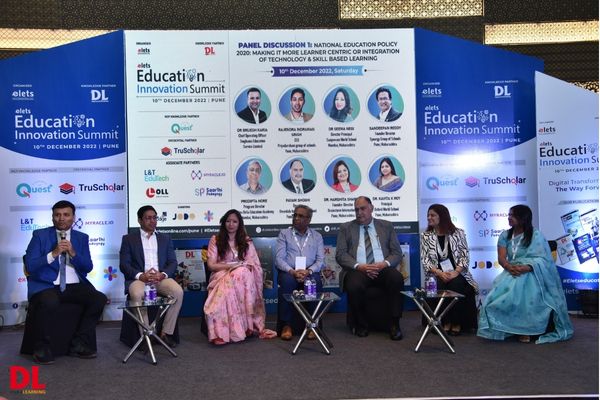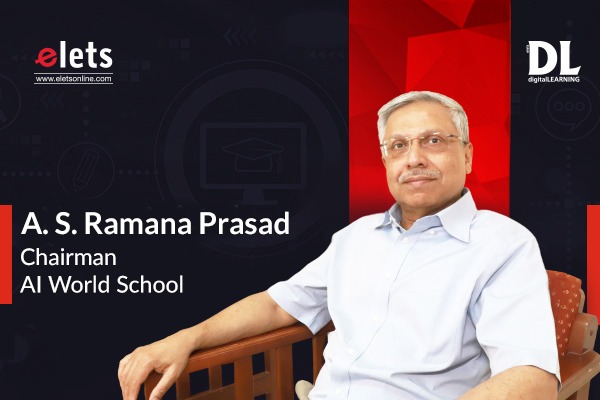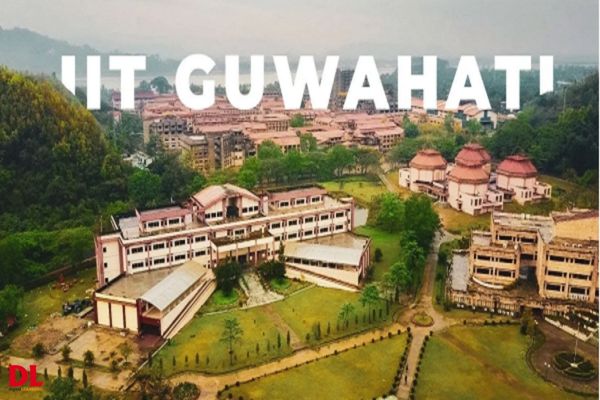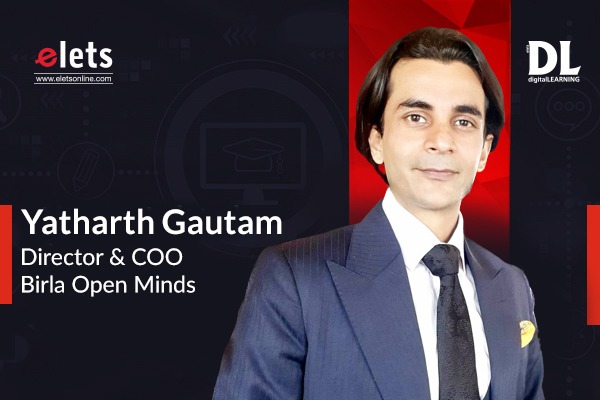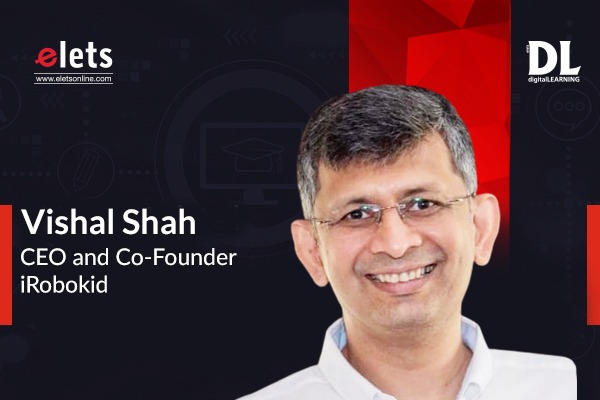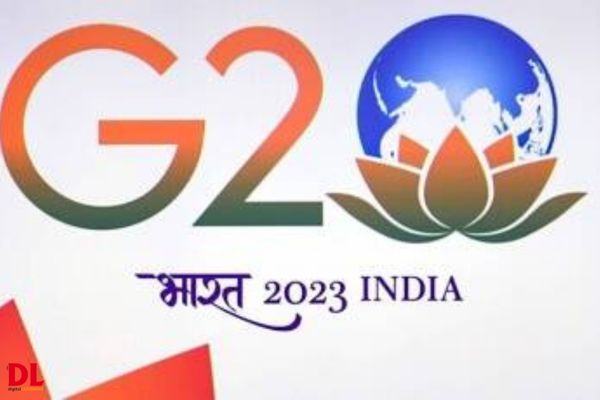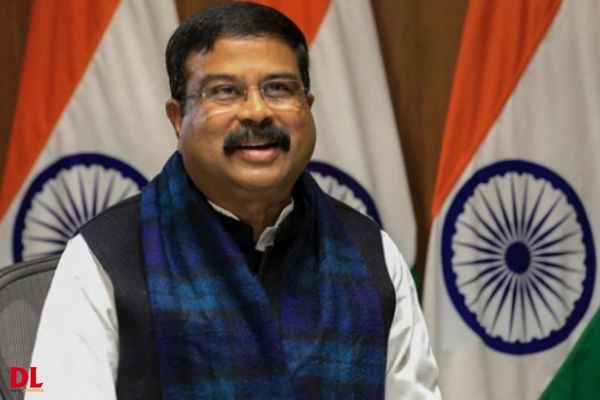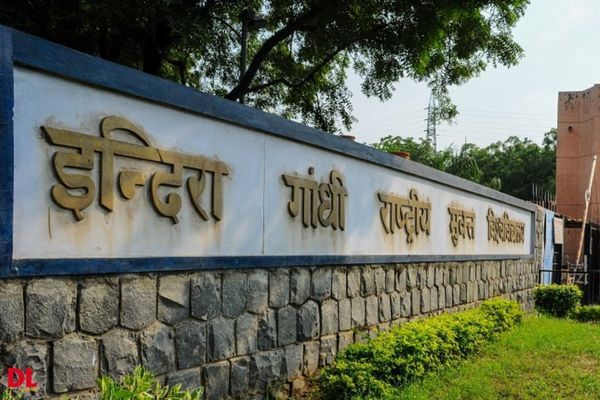National Education Policy is one of the major moves that education sector of India has taken over the longest time. It is now turning every cornerstone of the sector for the good. Integration of technology and skill-based learning is making the learning process more learner-centric. At the prominent platform of the Education Innovation Summit in Pune, a wonderful set of panelists discussed the topic. Here is an edited excerpt:
NEP is a welcome change. After decades, we are getting a new policy and one good thing that I came across after talking to various principals of schools is ‘Hope’ and ‘Anticipation’. Anything will have pros and cons but the beauty of this policy is that it has more pros. A lot of things are going to change for the good. However, we need to prepare lots of things to implement this policy, shared Dr. Brijesh Karia, Chief Operating Officer, Singhania Education Service Limited.
Rajendra Indraman Singh, Managing Trustee & Vice President Priyadarshani Schools & NISA (National Independent Schools Alliance) said, “Students need support after school hours, and technology can be blended in such a way that it helps the students and supports them. A lot of schools must be using technology right now and will continue to use it but that’s not the case in the state of Maharashtra right now.”
When it comes to the implementation of NEP, the SCERT has made 297 task points and for every state, NEP is being interpreted differently. The most alarming interpretation is in Andhra Pradesh. The State School Standard Authority (SSSA) of Andhra Pradesh has not only controlled the fees and finances of schools, but also the appointment of teachers. So, NEP is interpreted differently in different states. The most alarming thing in SSSA is the safety norms, Singh added.
The present government is more in pace to implement the policy. The first step of policy in the state of Maharashtra would be accreditation. The IESA (The Independent English School Alliance) and NISA (National Independent Schools Alliance), have stepped into the state of Maharashtra. And we have miled down the accreditation to learning outcomes which were pointing out towards the KSA (Key Stage Assessments) in three, five and eighth grades. We have molded it into a form of learning outcomes only. So there is the bottleneck at both ends, why NEP is slowed down in the state of Maharashtra in terms of implementation, he concluded.
“Blended learning was always a part of our ecosystem while talking of education whether in traditional or modern mode. Though the term became the buzzword during the pandemic, because the technology was the tool that become mandatory”, stated Seema Negi, Principal, Sanjeevni World School, Mumbai, Maharashtra.
While talking about the challenges of execution, she said there were initial difficulties and hitches. But the entire education fraternity sailed through those hitches and blended learning is now a part of the entire ecosystem.
She added, “Whether it is blended learning or traditional learning, are we teaching our learners with the right value sets? Things are changing so fast, I think our children have become more pro and they have moved ahead of blended learning. The thing that is most important is whatever we are teaching or whatever we are learning, are the values intact?”
Prodipta Hore, Program Director, Aditya Birla Education Academy, Mumbai, Maharashtra said, “Before the pandemic, there were a number of teachers who were not using technology, but after the pandemic and during the pandemic, they were forced to do that and now they are pros in using it. Teachers need to be trained, and the urge should come from the teachers, not from the management. It’s high time, we need to form a teacher-learning community.”
Technology has two aspects, one is the push and the other is the pull. The pandemic taught us the pull factor, I need something and we look around to get it. So, the pull factor is the most important shared Payam Shoghi, Director, Riverdale International School, Pune, Maharashtra about technology implementation in various industries.
About the teacher’s upskilling and training, he stated that it all boils down to the mindset of teachers. There is a difference between what you have to do and what you want to do. Sometimes, teachers just go ahead to the classroom because they need to cover the lesson plan and report back. And in the case of a person, who wants to do things differently, they definitely go ahead, find resources, train themselves, and will do things differently.
He further added, “The idea of student-centric learning is not unique to NEP, we have been talking of it since a decade; notably National Curriculum Framework (NCF) 2005, and before.” I think we haven’t been able to connect to it. So, it’s more about the question of conviction. The more space the teacher will yield, the more students will do things on their own. So, the future of the students will depend on how smartly you start doing things today.
Dr Harshita Sharma, Founder-Director, Brainstorm International, Pune, Maharashtra shared, “For a school, there are three key stakeholders which are the management, the students and the parents. The students are at the center of everything. We always talk about professional training of teachers which is already there, but when we talk about the parents, we need to conduct intensive sessions for them also in the school to give them clarity on what we are teaching and why we are teaching.”
Dr Kavita K Roy, Principal, Oxford World School, Pune, Maharashtra shared that the first thing that we need to teach our students is the art of questioning. They need to be taught to move from LOTS (low-order thinking skills) to HOTS (higher-order thinking skills).
With the inception of NEP, we have also learned the importance of questions. The questions should be competency-based, as competency is an amalgamation of knowledge and skills, added Dr Roy.
“Teachers should be equipped well with framing the right questions and the entire cycle should be completed by giving effective feedback. The feedback should not be just good, very good, or excellent; it should end up with solutions – what is best for the students, what are the improvement areas, and more. This entire procedure will only be effective when the leader will be dissipating the right information at the right time, concluded Dr Roy.








